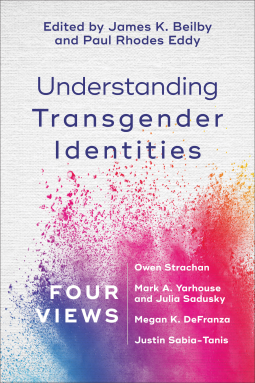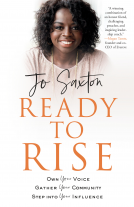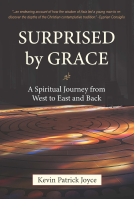
Understanding Transgender Identities
Four Views
by James K. Beilby Paul Rhodes Eddy
This title was previously available on NetGalley and is now archived.
Send NetGalley books directly to your Kindle or Kindle app
1
To read on a Kindle or Kindle app, please add kindle@netgalley.com as an approved email address to receive files in your Amazon account. Click here for step-by-step instructions.
2
Also find your Kindle email address within your Amazon account, and enter it here.
Pub Date Nov 05 2019 | Archive Date Dec 20 2019
Baker Academic & Brazos Press | Baker Academic
Talking about this book? Use #UnderstandingTransgenderIdentities #NetGalley. More hashtag tips!
Description
This book offers a full-scale dialogue on transgender identities from across the Christian theological spectrum. It brings together contributors with expertise and platforms in the study of transgender identities to articulate and defend differing perspectives on this contested topic. After an introductory chapter surveys key historical moments and current issues, four views are presented by Owen Strachan, Mark A. Yarhouse and Julia Sadusky, Megan K. DeFranza, and Justin Sabia-Tanis. The authors respond to one another's views in a respectful manner, modeling thoughtful dialogue around a controversial theological issue. The book helps readers understand the spectrum of views among Christians and enables Christian communities to establish a context where conversations can safely be held.
Advance Praise
“Understanding Transgender Identities is a groundbreaking book that will support Christians in deepening their theological and biblical understanding and their reflections on pastoral care. The book’s editors offer extensive definitions and arguments from natural and social science yet remain focused on how to best witness to God’s love and serve Christ’s purposes. The presence of four perspectives shows there is no simple for-and-against binary here; rather, Christian certainties, worries, concerns, and joys intersect and diverge across these four views. While this may frustrate those already solidly committed to a point of view, it may delight the intellectual and curious mind. The most grateful readers will be those sincere Christians who wish to love their transgender neighbors as themselves but are bewildered or uncertain about the linguistic, scientific, biblical, theological, and pastoral complexities associated with transgender identities. Understanding Transgender Identities will honor that sincerity while stretching readers to consider a broad range of information and viewpoints.”—Jenell Paris, professor of anthropology, Messiah University
“Every Christian leader needs to think through questions related to transgender identities and experiences. Every Christian leader, therefore, needs to read this book and humbly and critically consider the various views. Paul Eddy and James Beilby have put together a thoughtful team of scholars addressing some of the most important ethical questions facing the church today.”—Preston Sprinkle, president of the Center for Faith, Sexuality, and Gender
“As an outsider to Christianity and an insider to transgender experience and scholarship, I found this explicitly Christian exercise in ‘understanding transgender identities’ to be a provocative read. Although none of the authors reference the prophet Isaiah’s invitation to come ‘reason together’ (Isa. 1:18) as an enactment of one’s faith, this is precisely what most impresses me about the book—that authors with diametrically opposed views on the compatibility of Christian and transgender identities can argue respectfully about their radically divergent interpretations of the same foundational texts. At a time when transgender issues have become weaponized in the culture wars, this is an orientation toward dialogue and encounter that we would all do well to emulate.”—Susan Stryker, founding coeditor of TSQ: Transgender Studies Quarterly
“This nuanced, authoritative book shows the diverse approaches to gender variance that Christians can hold with integrity. Scientifically, biblically, and theologically rigorous, Understanding Gender Identities confidently leads readers through a field too often fraught with misinformation. Readers who approach the book with a point of view about gender variance—and those who do not know what to make of it at all—will find themselves gently challenged. The authors model robust yet respectful disagreement, challenging and stirring one another. This is a book with love, compassion, and a deep yearning for truth and divine light at its heart.”—Susannah Cornwall, senior lecturer in constructive theologies and director of EXCEPT (Exeter Centre for Ethics and Practical Theology), University of Exeter
Available Editions
| EDITION | Other Format |
| ISBN | 9781540960306 |
| PRICE | $29.00 (USD) |
| PAGES | 272 |
Featured Reviews
I appreciate multi-view Christian theology books like this one. They provide insight into controversial topics in a way that largely prevents straw man argumentation or <i>ad hominem</i>. Each author (or team of authors) gives their view on the topic at hand, and each of the others authors is allowed to write a short rebuttal/response. By the end you have a good idea of major points of agreement and disagreement across the Christian spectrum.
The four views in this book aren’t given “official” names, but they range from Strachan’s conservative Christian view that transition to a gender different from biological sex is immoral to the view of Sabia-Tanis a trans man who celebrates transgender identities as an expression of God’s creativity and diversity. The two mediating positions are really more like four mediating positions as Yarhouse & DeFranza’s chapter offers three different approaches to the issue (and doesn’t really take a stand on any of them).
Strachan’s chapter deals most extensively with potentially relevant biblical passages (but seems very short on nuance or rubber-meets-the-road application), while the others spend more of their page count with scientific & psychiatric theories, pragmatic descriptions of what seems to best help a gender-dysphoric person’s well-being, and/or appeals to emotion. DeFranza and Sabia-Tanis rest their Bible-based arguments almost entirely on passages dealing with eunuchs while brushing aside other passages as irrelevant and/or misinterpreted.
If you are a Christian, you may or may not find a view here that exactly matches up with your own, but you will at least gain an understanding of the specific issues, questions, and lines of reasoning involved. This is a solid multi-view theology book.
 Conrade Y, Reviewer
Conrade Y, Reviewer
As Western society becomes more liberal, traditional and conventional forms of understanding sexuality will be challenged in more ways than one. Editors James Beilby and Paul Eddy observe that since the 60s, sexuality and gender have become more openly discussed and debated. While many have spoken about women's rights and issues; marriage; homosexuality; there is little mention about transgender identities. This book aims to provide a platform for scholarly and respectful discussion and debate. Five contributors are invited to give their views. One of them in particular, Justin Sabia-Tanis "transitioned from female to male more than twenty years ago." This gives the book a more unique perspective into the inner struggles of transgenderism. Like most "four views" books, the editors invited scholars, theologians, researchers, educators, counselors to offer their views on transgender concerns. Unlike books that focus on just the pros and cons of each view, this book takes the approach of examining the underlying reasons for each view. Beilby and Eddy set the stage up by looking at the issues from a historical angle; contemporary concerns; and how to promote conversations to engage different views.
Some of the terms used are to be treated sensitively as well. The commonly understood "pronouns" become questionable the deeper the debate as the transgender issue uniquely challenges conventional understanding of what male and female means; and for that matter, what a "transman" and "transwoman" means. "Sex change" needs to be nuanced to include "cross-dressing" and bisexual matters. They note the rising public acceptance which pits traditional opinions with the modern. This leads to conflicts when it comes to institutional rules and regulations, simply because of the speed of growing cultural acceptance. These shifts include alternative interpretation of traditional norms. Instead of binary-only distinctions, more are accepting the progressive continuum explanation. Such a view has become increasingly popular as more people "come out" of their closet after years of hiding. This pits literal against emotional interpretations. How do we distinguish biological differences from psychological ones? Is sexual identity a matter of interpretation and feeling? How do we think biblical if there is a third or fourth sexuality? What about arguments biased by "neurosexism?" With the prominence of mental challenges, people are also looking at psychological impacts to one's perception of sexuality. "Gender dysphoria and childhood sexual abuse" are some of the more serious issues to grapple with.
As the issue is still relatively new, the editors find it hard to put a name to the various views. Due to the lack of clearly defined labels, it is hard to put a finger on the exact words to describe any one view. In a nutshell, the overly simplified labels I have given to the four views are:
1) Gender is Binary: "Moral-Theological Approach" (Owen Strachan)
2) Gender Identity Must be Nuanced (Mark Yarhouse and Julia Sadusky)
3) Christ above Gender View (Megan DeFranza)
4) Gender Diversity (Justin Sabia-Tanis)
Strachan presents the case for clear distinction between the sexes. After all, the Bible says God had made humans as male or female. Unfortunately, the world we are living in have transgressed such original divine designs. He argues that without such clear starting points, we would be deprived of any "intellectual fortification" as we look at our broken world today. On gender dysphoria, one ought to reject the stand but be compassionate and sensitive.
Mark Yarhouse and Julia Sadusky react strongly against Strachan by arguing for a more nuanced understanding of sexuality. They claim that there are more complicated factors at play. They say that sexuality is more a continuum than a binary phenomenon. They present "three interpretive lenses" to understand gender identity: Integrity, disability, and diversity. Healing in their perspective refers more to "spiritual healing" than physical restoration.
Megan DeFranza puts weight on feelings and science as relevant to moral reasoning. She focuses on the role of eunuchs in early Christianity. Such people were castrated, often against their wills to become less than who they were biologically. Questioning the premise for seeing male and female as "ideal pattern" or "exclusive model," she prefers to avoid making any sharp distinctions, preferring to focus on conformity to Christ rather than conformity to such distinctions. In other words, gospel identity in Christ is more important than gender identity.
Justin Sabia-Tanis sits concretely in the "continuum of identities." He brings in a host of other fields of study such as hermaphroditic species in biology; the diversity of creation; and also the situations of eunuchs in the Bible. He is essentially saying that gender diversity in itself is unique. Using his own life as an example, he says that the transition from female to male was "absolutely life-affirming and life-giving." While he says that people have a right to treatment for any gender dysphoria, he is troubled when opponents move the issue from medical sciences to theological sins. He concludes by asking for mutual respect, for healthy engagement; for compassion and justice.
My Thoughts
===============
This book is essentially a space for conversation between Christians who are honest and open about their interpretations of transgenderism. By highlighting the differences of opinions, readers will find themselves agreeing with some more than others. I appreciate the insightful critiques offered by all of the contributors on each other's essays. This reminds me that the first rule of engagement is understanding. Sometimes, our Christian conversations can degenerate to name-calling and acts that constitute putting words into another person's mouth. Such mudslinging is not obvious in this book. The contributors are respectful of one another, and yet convicted in their respective theological opinions. All of them honour the position of the Bible. They engage common passages such as Genesis 1-3 and the New Testament. Of key importance is terminology and the definitions of words. One cannot simply depend on the conventional dictionaries to describe the meaning of the term. This is especially so considering progressive interpretations are becoming more mainstream.
It is easier to make a clear binary distinction and put them in the same category of Jesus telling us to let our "yes be yes" and our "no be no." Given the diversity of opinions, doing that for the gender debate would be problematic simply because the word "gender" has different definitions! This conversation is not done. There is room for more dialogue and understanding. Perhaps, through charitable actions and Christlike love, we can reach out to all persons, regardless of theological persuasions and to learn to listen doubly hard before speaking any word. After all, we are taught in the Bible to be quick to listen and to be slow to speak. There is much wisdom in that teaching and we should all do the same.
As we read the book, be mindful of your own "preferred positions" by not letting them predetermine your reactions to any of the essays written. There are many technical terms as well to navigate through. While it might take a while to really understand what the author is saying, once we successfully traipse through the points, we would find ourselves better equipped to deal with a diversity of opinions all wanting to practice speaking the truth in love.
Owen Strachan is associate professor of Christian Theology at Midwestern Baptist Theological Seminary. Justin Sabia-Tanis is assistant professor at United Theological Seminary at the Twin Cities. Mark Yarhouse teaches Psychology at Wheaton College while Julia Sadusky is post-doctoral fellow at EDCare in Denver, Colorado. Megan DeFranza is reseach associate at the Center for Mind and Culture (Boston) and a visiting researcher at Boston University School of Theology.
Editors James Beilby and Paul Rhodes Eddy teach at Bethel University (St Paul, MN). Beilby is professor of systematic and philosophical theology at Bethel while Eddy is professor of biblical and theological studies.
Rating: 4 stars of 5.
conrade
This book has been provided courtesy of Baker Academic and NetGalley without requiring a positive review. All opinions offered above are mine unless otherwise stated or implied.
 Julia B, Reviewer
Julia B, Reviewer
This was a weighty read - there were a lot of medical, psychological and other terms to understand and follow along with. I did appreciate though the way this book was formatted - four different views on transgender identity and how Christians should respond. The book was charitable, gracious and presented some good viewpoints. If this is an issue you are interested in, I highly recommend.













